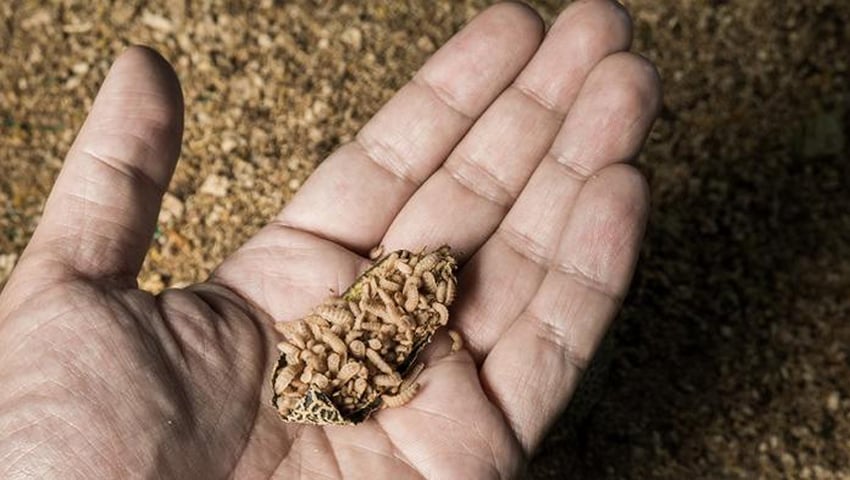Farmers and suppliers across the poultry production food chain are being invited to a symposium to discuss the work of the world’s first fully modular insect farm.
The event – to be held on January 10 – will discuss the work of the 360 Farm, a ground-breaking project which aimed to tackle climate change, land overuse and food waste by using insects as a sustainable protein source for commercial farming.
Over the course of the day, delegates will explore the sector’s views of the benefits, barriers, and solutions of introducing insects – Black Soldier Fly larvae – to poultry production in England.
The work of the farm will be examined via keynote presentations, with attendees welcomed to offer feedback and insights on the lessons learnt during the project.
Principal Investigator and Senior Lecturer in Alternative Food Networks Dr Jane Eastham said, “The work was funded through Innovate UK under a call under alternative proteins, which is coming to a close. This related to the perceived need to find alternative proteins in animal diets to soya, where there are concerns with respect to both its availability and its impact on climate change, due to practices in its production.
“Black soldier fly larvae, due to their propensity to clean up waste organic matter, have become of interest for the non-ruminant farming section. Whilst in the EU, legislation allows the feeding of insects as a processed meal added to poultry or pig diets – in the UK this would fall under animal by-product legislation.
“The importance of this symposium is to provide a forum to foster discussion amongst interested parties of the factors affecting the production and feeding of Black Soldier Fly larvae, produced on livestock farms, as a source of animal protein.”
By the end of the event, researchers not only hope to be able to provide an insight into the work of the farm, but also to gain a wider understanding of the current level of industry knowledge and attitudes to the use of insects as food on commercial farms in England.
They also hope to be able to draw upon industry expertise and opinion to put forward a series of proposed changes to policy and practice to government to help boost the viability of farming insects for poultry feeding in England.
Dr Eastham added, “We are inviting all interested parties who play a role in the associated supply chain to attend – we have an exciting line up of speakers and topics for the event, as well as a workshop designed to promote networking and explore the sector views on BSFL use in poultry production.
“We are inviting delegates from across the industry to give representation to lobby groups, farmers, retailers, academics, suppliers, assurers and community groups.”
To register an interest in the event, please email Dr Eastham
